News
-
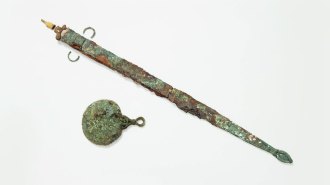 Archaeology
ArchaeologyA mysterious ancient grave with a sword and mirror belonged to a woman
The items hint that she fought in or helped plan raids and defensive actions in what’s now southwestern England about 2,000 years ago, scientists speculate.
By Bruce Bower -
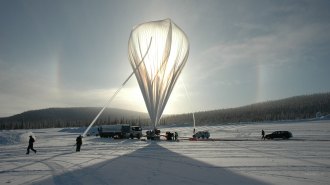 Climate
ClimateA new UN report lays out an ethical framework for climate engineering
The report’s release, which coincides with COP28, weighs the ethics of using technological interventions to mitigate climate change.
-
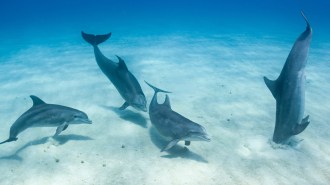 Animals
AnimalsFish beware: Bottlenosed dolphins may be able to pick up your heartbeat
Fish, sharks and platypuses are adept at sensing electrical signals living things give off. Bottlenosed dolphins make that list too, studies suggests.
-
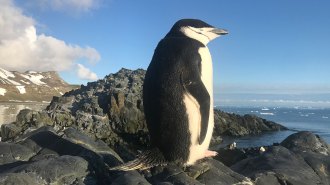 Animals
AnimalsThese nesting penguins nod off over 10,000 times a day, for seconds at a time
Micronaps net chinstrap penguins over 11 hours of sleep a day, offering some rest while staying vigilant against predators and competitors.
By Jake Buehler -
 Earth
EarthBefore ancient Egyptians, nature sculpted sphinxes. Here’s how
Steady winds can carve landforms called yardangs — thought to have inspired the Great Sphinx of Gaza — from featureless blobs, a new study suggests.
By Elise Cutts -
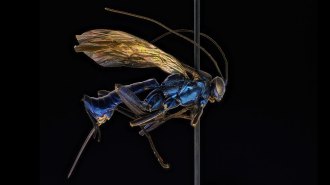 Animals
AnimalsOne mountain in Brazil is home to a surprising number of these parasitic wasps
Darwin wasps were thought to prefer temperate areas. But researchers scoured a mountain in the Brazilian tropics and found nearly a hundred species.
-
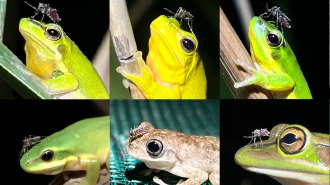 Life
LifeSome picky Australian mosquitoes may target frog nostrils for blood
The insects seem to sip from nowhere else on frogs’ bodies. Thinner skin or denser blood vessels near the nostrils might explain why.
By Jake Buehler -
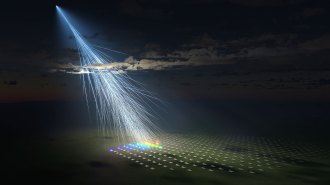 Astronomy
AstronomyA rare, extremely energetic cosmic ray has mysterious origins
In 1991, physicists spotted a cosmic ray with so much energy it warranted an ‘OMG.’ Now that energetic particle has a new companion.
-
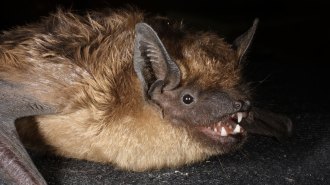 Animals
AnimalsThese bats are the only mammals known to mate more like birds
Male serotine bats have penises too large for penetration. To mate, the animals rub their genitals against each other, somewhat like birds’ cloacal kiss.
-
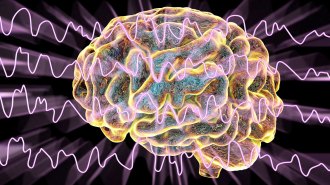 Health & Medicine
Health & MedicineA brain-monitoring device may one day take the guesswork out of anesthesia
The automated device pairing brain activity and dosing kept two macaques sedated for 125 minutes, raising hopes of precision anesthesia for people.
-
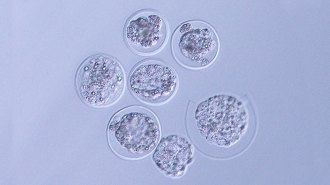 Animals
AnimalsThe first embryos from a mammal have now been grown in space
Mouse embryos in space can develop into clusters of cells called blastocysts. The result is a step toward understanding how human embryos will fare.
-
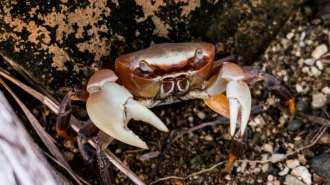 Life
LifeCrabs left the sea not once, but several times, in their evolution
A new study is the most comprehensive analysis yet of the evolution of “true crabs.”
By Amanda Heidt